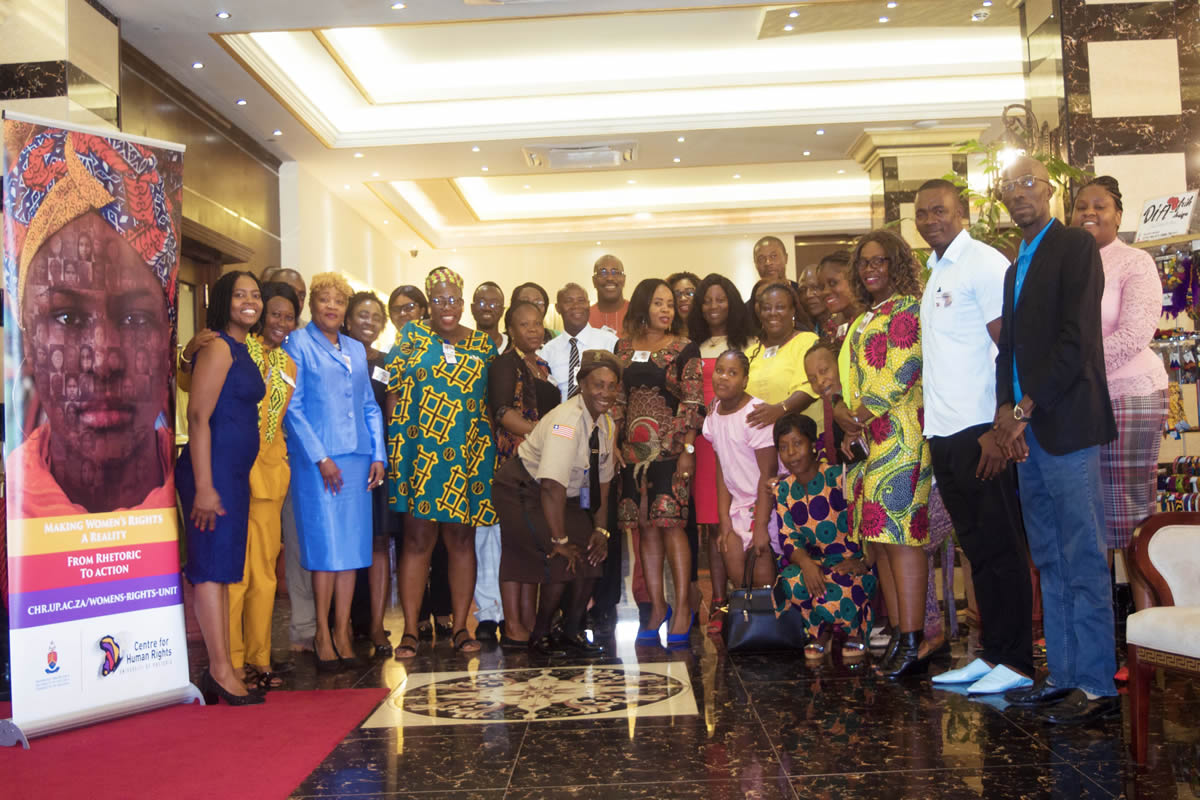The Republic of Liberia ratified the African Charter on Human and Peoples’ Rights in 1982 and its supplement instrument, the Protocol to the African Charter on Human and Peoples Rights on the Rights of Women in Africa (Maputo Protocol), in 2007. By virtue of its ratification of these instruments, Liberia is bound by the reporting obligations as prescribed under Article 62 of the African Charter and Article 26(1) of the Maputo Protocol. However, despite these commitments, the last time Liberia reported to the African Commission on Human and Peoples Rights (African Commission) on the African Charter was in 2012 and the country is yet to report on the Maputo Protocol.
In view of fulfilling these reporting obligations, Liberia’s Ministry of Justice and the Ministry of Gender, Children and Social Protection (MGCSP) hosted a four-day drafting workshop focusing on the Maputo Protocol section of the report (Part B). This drafting workshop was held in collaboration with Women’s Rights Unit at the Centre for Human Rights, University of Pretoria. The workshop was held from 11 to 14 November 2019 at the Boulevard Palace Hotel. The workshop was attended by 32 stakeholders involved in Liberia’s state reporting and drafting process. The stakeholders consisted of representatives from government ministries, the National Human Rights Commission as well as civil society organisations (CSOs). Key representatives that attended the workshop included Honourable Meo D. Beyan, Deputy Minister of Economic Affairs, Ministry of Justice, Ms Tonieh A Talery-Wiles, Oversight Commissioner and Commissioner Winfred Gray-Johnson, Independent National Commission on Human Rights.
The Maputo Protocol drafting workshop is the third phase in a series of the Centre’s engagements in assisting Liberia to fulfill its reporting obligations to the African Commission. The main objective of the Maputo Protocol drafting workshop was to provide the requisite technical support as relevant stakeholders in Liberia begin the process of drafting the Maputo Protocol section of their report to the African Commission.
Since the end of the second civil war in Liberia in 2003, contentious issues, especially in relation to ensuring the realisation of rights for women as provided for in the Maputo Protocol, remain in Liberia. Some of these contentious issues were discussed in the workshop, such as the elimination of harmful practices. The eradication of female genital mutilation (FGM) through legislative sanctions is outlined in article 5(b) and questions about how to ensure that FGM is completely eliminated in the absence of laws have continued to be interrogated.
FGM is a prevalent cultural and religious practice in Liberia with difficulties determining the actual numbers of Liberian women that have undergone the practice. Although the Liberian government temporarily prohibited the FGM practice in 2018, this ban has since expired, leaving women and girls vulnerable to this harmful practice.
Another contentious issue discussed was the right to medical abortion in certain circumstances as provided for in article 14(c) of the Maputo Protocol, vis-à-vis the right to life. The debate centred on how to reconcile and balance these supposedly conflicting rights especially considering the belief that the life of a foetus begins at conception.
A major outcome at the end of the workshop was the significant commitment expressed by participants to continue the drafting process and enhance the quality of the report consisting of Part A on the African Charter as well as the Part B on the Maputo Protocol. The Centre will continue to work closely with this core group of participants as well as the technical consultants in finalising the report to the African Commission in accordance with reporting obligations.
For more information, please contact:


